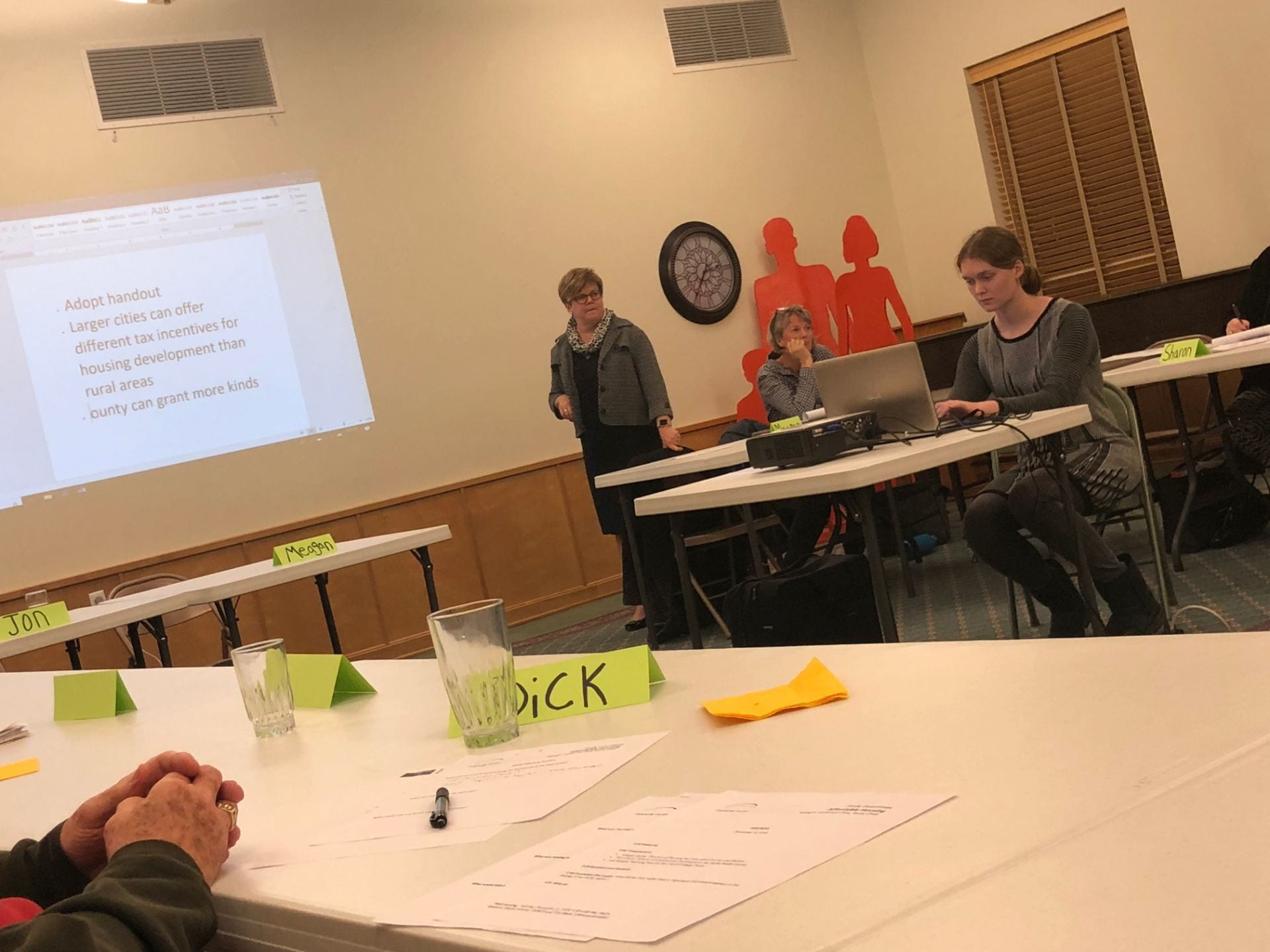Eight.
That’s how many affordable homes there are for every 100 very low-income families in Walla Walla.
This means that 92% of very low-income families might struggle to find money for food, heat, or transportation while they try to pay rent.
We know this now and are trying to address this thanks to Community Council’s Affordable Housing Study.
Community Council is a non-profit that talks with people to determine issues in the Walla Walla community and surrounding regions. Every one-to-two years, they choose a topic to study and have weekly meetings where speakers come to address the study committee, a group of community members who are interested in the topic. After several of these meetings, the study committee decides on the main findings from the speakers and issues recommendations in the form of a study report.
 As the Community Fellow for Community Council this year, my job is to contribute to the gathering and summarization of data for this study. I do this by recording what the speakers say at weekly meetings, summarizing the meetings, interviewing people for background on the topic of affordable housing, and finding potential speakers for future meetings. In doing this, I have had many great opportunities to meet leaders at other local non-profits Blue Mountain Action Council (BMAC) and learn from developers and Walla Walla City Council members. While it has been interesting to learn about this issue in the local context, we have also been very lucky to have speakers with expertise on state and national programs come in and situate Walla Walla in the larger scheme too.
As the Community Fellow for Community Council this year, my job is to contribute to the gathering and summarization of data for this study. I do this by recording what the speakers say at weekly meetings, summarizing the meetings, interviewing people for background on the topic of affordable housing, and finding potential speakers for future meetings. In doing this, I have had many great opportunities to meet leaders at other local non-profits Blue Mountain Action Council (BMAC) and learn from developers and Walla Walla City Council members. While it has been interesting to learn about this issue in the local context, we have also been very lucky to have speakers with expertise on state and national programs come in and situate Walla Walla in the larger scheme too.
Thus far, we on the study committee are still gathering data from speakers. Personally, I know that I am learning a lot not only about affordable housing, but also about the power of face-to-face interaction. In study meetings, we all sit around a table, and once the speakers are done, anyone can ask questions or provide an answer to what they thought they heard the speaker say. After that, everyone else in the room must agree that they heard a speaker say a similar statement. A thumbs up symbolizes agreement, a thumbs in the middle symbolizes can tolerate how another person on the study committee paraphrased the speaker, and a thumbs down symbolizes disagreement. Every person must vote with a thumbs up or a thumbs in the middle before we proceed. Since there are around 40 people on our study committee, this can be a challenge. But since the people are all in the same room and must come to a consensus, they collaborate to form a consensus despite their different personal opinions, areas of expertise, and stakes in this issue. During this time when the internet is making it much easier to automatically view anyone who disagrees with us as our enemy, I think that it is increasingly important to foster spaces for different kinds of people to come together and find solutions. By participating in Community Council’s study process, I am beginning to learn how I can do this here in Walla Walla and how I might do this elsewhere next year once I graduate.
stakes in this issue. During this time when the internet is making it much easier to automatically view anyone who disagrees with us as our enemy, I think that it is increasingly important to foster spaces for different kinds of people to come together and find solutions. By participating in Community Council’s study process, I am beginning to learn how I can do this here in Walla Walla and how I might do this elsewhere next year once I graduate.
To foster productive disagreement and help people in our communities, we must learn how to see people who think differently from us not only as obstacles but also as opportunities. I cannot yet describe the exact form that our study report will come to take, but I am confident that the recommendations included in it will be more specific and direct because of the study committee’s rich, sometimes contentious conversations. These conversations will be translated into forms of action that will help make the more vulnerable members of the Walla Walla community better able to afford to live here.